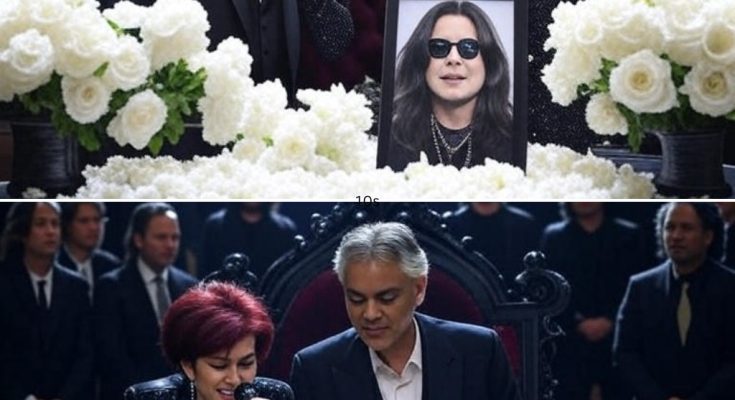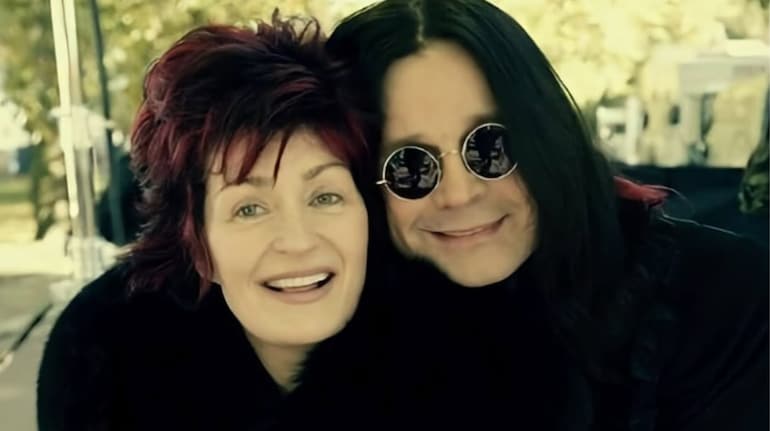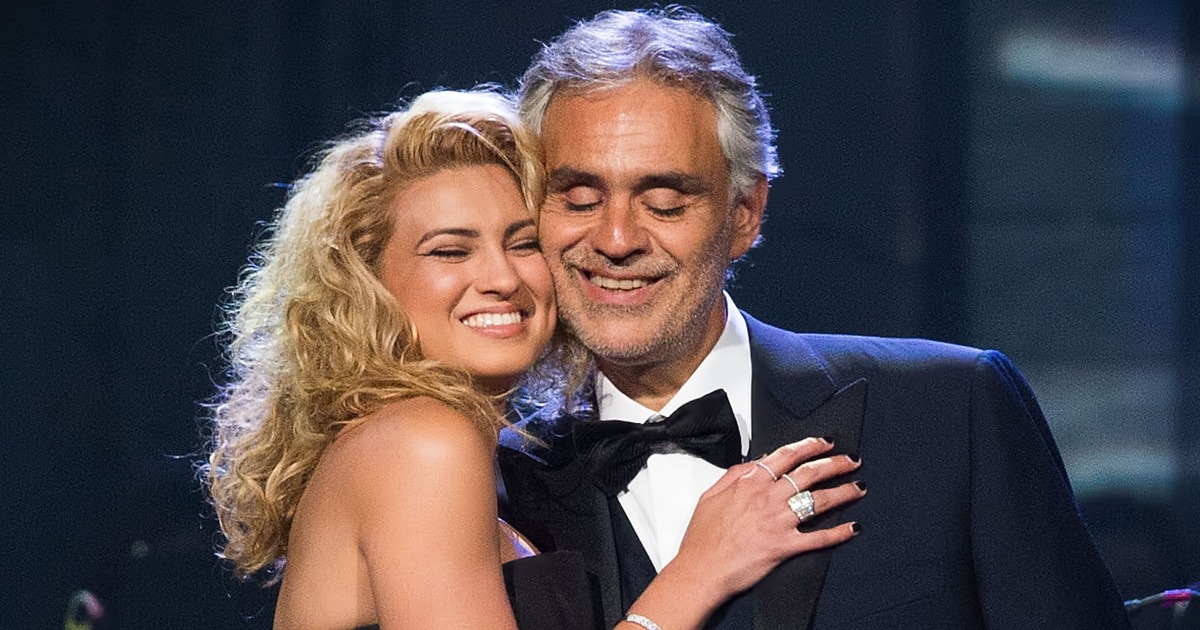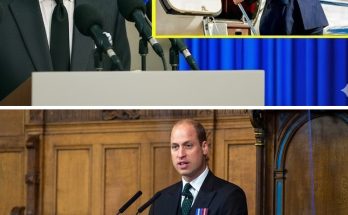The sky over Birmingham was grey, heavy with mist, as more than 20,000 mourners gathered for one final goodbye to a man who had roared through life with a voice that shook stadiums and a heart that beat hardest for those he loved. Ozzy Osbourne—The Prince of Darkness, the father, the husband, the legend—was gone.
The grand memorial stage was draped in black velvet, flanked by iron candelabras, roses, and flickering screens showing moments from Ozzy’s life—on stage, with fans, with his children… and always with Sharon.
Fans expected tributes. They expected guitars, tears, maybe even fireworks. What they didn’t expect—what no one could have predicted—was the silence that would soon fall over the arena. And what broke it.
As the orchestra tuned softly and the lights dimmed to a gentle blue glow, Andrea Bocelli stepped onto the stage. His very presence hushed the air. A global icon of opera, Bocelli was known for stirring the soul—but this time, something was different. He wasn’t alone.
From the far left side of the stage, a figure emerged slowly. Sharon Osbourne, clad in a long black dress with sleeves like veils, moved toward him with quiet dignity. Her steps were unsure, but her face… her face held something more powerful than grief. It held purpose.
Gasps rippled through the audience. Some couldn’t believe what they were seeing. Sharon was not known as a singer. She had managed, supported, and loved Ozzy for over four decades—but this? This was something else.
Bocelli began to sing the opening lines of “Time to Say Goodbye.” His voice—deep, rich, sorrowful—wrapped around the arena like prayer. Then, halfway through the first verse, Sharon stepped to the microphone. Her voice, though far from polished, cracked with raw emotion. It wasn’t about perfection. It was about pain. It was about love.
Together, their voices met—his trained and soaring, hers trembling and human. They sang not just to the crowd, but to Ozzy himself. Sharon didn’t look out into the audience once. Her eyes were fixed skyward.
People began to cry. Men who had followed Ozzy since the Sabbath days wiped their faces. Young fans held each other. Security guards removed their hats. It wasn’t just a performance—it was a farewell stitched together by music, loss, and a bond stronger than death.
As the final chorus rang out, Sharon whispered the last line—not into the mic, but into the air, like a secret meant only for him.
The crowd didn’t erupt. There was no applause. Just silence. Pure, aching, reverent silence.
Then someone, somewhere, started singing softly. “Mama, I’m Coming Home.” A few joined. Then dozens. Then thousands. It became a gentle chorus from the crowd, lifting into the sky like smoke from a sacred fire.
Sharon bowed her head, her hands shaking, and turned to Bocelli. He gave a respectful nod, took her hand, and together they walked offstage into the shadows.
Later that night, in interviews and social media posts, attendees would try to explain what they had witnessed. “It felt holy,” one fan said. “Like we weren’t just saying goodbye to a rock star, but honoring a love story.” Others called it the most emotional moment in music since Freddie Mercury’s tribute concert.
But perhaps the most poignant words came from Kelly Osbourne, who posted a single photo on Instagram: Sharon onstage, eyes closed, singing beside Bocelli. The caption read, “She sang for Dad. And the world sang with her.”
Ozzy Osbourne’s funeral was always going to be legendary.
But no one expected it to end in a duet that left 20,000 people speechless, sobbing, and forever changed.
And in that haunting harmony, rock and roll bowed one final time—to love.


:max_bytes(150000):strip_icc():focal(999x531:1001x533)/sharon-ozzy-osbourne-2-0faf7f3f9f8c431494b53e808814146a.jpg)



